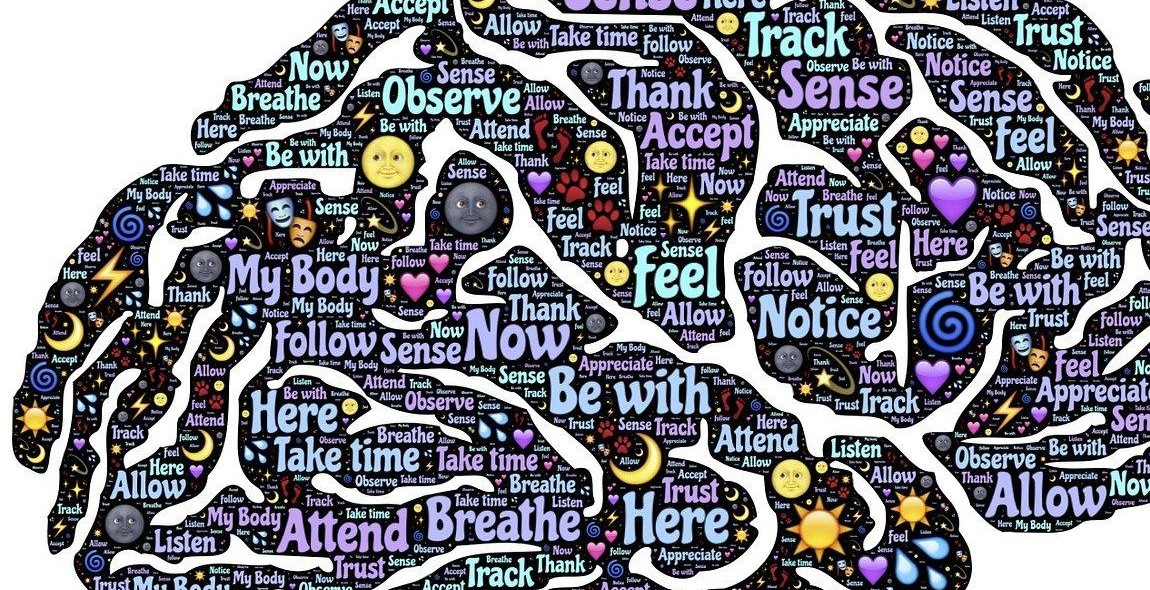The Power of Mindfulness Meditation on Mental Health
Mental health is a crucial aspect of overall well-being. It affects how we think, feel, and behave. While there are various treatments available for mental health issues, the practice of mindfulness meditation has gained popularity in recent years as a powerful tool for improving mental health.
Mindfulness meditation is a practice that involves focusing your attention on the present moment and accepting it without judgment. It helps you to become more aware of your thoughts, feelings, and physical sensations, which can lead to a greater sense of calm and clarity.
The Benefits of Mindfulness Meditation on Mental Health
Research has shown that regular practice of mindfulness meditation can have a positive impact on mental health. It can help to reduce symptoms of depression, anxiety, and stress. It can also improve overall well-being by increasing feelings of happiness, self-awareness, and compassion.
Mindfulness meditation has also been found to be an effective tool for managing chronic pain, improving sleep, and enhancing cognitive function.
My Personal Experience with Mindfulness Meditation
As a professional article writer and content creator, I have personally experienced the benefits of mindfulness meditation on my mental health. I have found that practicing mindfulness meditation regularly has helped me to reduce stress and anxiety, and improve my overall sense of well-being.
Through my own experience, I have come to believe that mindfulness meditation is a powerful tool for improving mental health and should be considered as a part of any mental health treatment plan.
What is Mindfulness Meditation?
Mindfulness meditation is a mental exercise that involves focusing one’s attention on the present moment, without judgment or distraction. It is a practice that encourages one to be fully present in the moment, to observe their thoughts and emotions without getting caught up in them. Mindfulness meditation is a way of training the mind to be more aware and more accepting of the present moment.
Mindfulness meditation is often practiced in a seated or lying down position, with eyes closed or focused on a specific object. The practice involves paying attention to one’s breath, bodily sensations, and thoughts, and bringing the mind back to the present moment when it wanders off. It is a simple yet powerful practice that can be done anywhere, anytime, and does not require any special equipment or training.
Origins of Mindfulness Meditation
Mindfulness meditation has its roots in Buddhist teachings, where it is known as Vipassana or Insight meditation. The practice has been around for over 2,500 years, and its popularity has grown in recent years due to its proven benefits for mental health.
Jon Kabat-Zinn, a professor of medicine at the University of Massachusetts, is credited with bringing mindfulness meditation to Western medicine in the 1970s. He developed a program called Mindfulness-Based Stress Reduction (MBSR), which combines mindfulness meditation with yoga and other techniques to reduce stress and improve overall health.
Since then, mindfulness meditation has become a mainstream practice, with millions of people around the world incorporating it into their daily lives. It is now widely used in clinical settings to treat a range of mental health conditions, including anxiety, depression, and post-traumatic stress disorder (PTSD).
In conclusion
Understanding what mindfulness meditation is and where it comes from is important in order to appreciate its power in improving mental health. By being present in the moment and observing our thoughts and emotions without judgment, we can learn to better manage stress and improve our overall well-being.

Benefits of Mindfulness Meditation on Mental Health
Mindfulness meditation is a practice that has been gaining popularity in recent years due to its numerous benefits on mental health. It involves focusing your attention on the present moment and accepting it without judgment. Here are some of the benefits of mindfulness meditation on mental health:
Reducing Stress and Anxiety
Stress and anxiety are common mental health problems that affect many people. Mindfulness meditation has been found to be an effective way of reducing stress and anxiety. It helps to calm the mind and reduce the levels of cortisol, the stress hormone, in the body. This can lead to a reduction in symptoms of anxiety and stress.
Improving Mood and Emotional Well-being
Mindfulness meditation can also improve mood and emotional well-being. It can help to reduce symptoms of depression and increase feelings of happiness and contentment. This is because it helps to regulate emotions and improve emotional awareness.
Enhancing Cognitive Functioning
Mindfulness meditation has been found to enhance cognitive functioning. It can improve attention, memory, and decision-making skills. This is because it helps to increase focus and reduce distractions.
Promoting Self-awareness and Compassion
Mindfulness meditation can also promote self-awareness and compassion. It helps individuals to become more aware of their thoughts, feelings, and behaviors. This can lead to a better understanding of oneself and others, and an increased sense of compassion and empathy.
Overall, mindfulness meditation is a powerful tool for improving mental health. It can reduce stress and anxiety, improve mood and emotional well-being, enhance cognitive functioning, and promote self-awareness and compassion. Incorporating mindfulness meditation into your daily routine can have a significant positive impact on your mental health.

How to Practice Mindfulness Meditation
Mindfulness meditation is a powerful tool for reducing stress, anxiety, and depression. It can also improve focus, attention, and overall well-being. Here are some steps to get started:
Finding a Quiet and Comfortable Space
Choose a quiet and comfortable space where you can sit undisturbed for a few minutes. It could be a corner in your room or a spot in your backyard. Make sure the space is clean, clutter-free, and has good ventilation.
Choosing a Mindfulness Meditation Technique
There are many mindfulness meditation techniques to choose from, such as breath awareness, body scan, loving-kindness, and walking meditation. Choose a technique that resonates with you and start with that. You can always switch to a different technique later.
Starting with Short Sessions and Gradually Increasing Time
Start with short sessions of 5-10 minutes and gradually increase the time as you become more comfortable with the practice. You can use a timer or a meditation app to track your progress. It’s better to practice for a few minutes every day than to practice for a long time once a week.
- Find a quiet and comfortable space to meditate
- Choose a mindfulness meditation technique that resonates with you
- Start with short sessions of 5-10 minutes and gradually increase the time
Remember, mindfulness meditation is a practice, not a quick fix. It takes time and patience to see the benefits. Don’t worry if your mind wanders during meditation. It’s natural. Just gently bring your attention back to your breath or your chosen object of focus. With consistent practice, you’ll develop greater awareness, clarity, and calmness.
Tips for Incorporating Mindfulness Meditation into Daily Life
Mindfulness meditation can be a powerful tool for improving mental health, but it can be challenging to incorporate into a busy daily routine. Here are some tips to help you make mindfulness meditation a regular part of your life:
Setting Reminders and Scheduling Time for Practice
One of the most effective ways to make mindfulness meditation a habit is to set reminders and schedule time for practice. Choose a time of day when you can consistently commit to practicing, such as first thing in the morning or before bed. Use a smartphone app or calendar to set reminders for your practice time and hold yourself accountable.
Using Mindfulness Techniques during Daily Activities
In addition to formal meditation practice, you can incorporate mindfulness techniques into your daily activities. For example, try focusing on your breath while washing dishes or walking to work. Pay attention to the sensations in your body and the present moment, rather than letting your mind wander. These small moments of mindfulness throughout the day can add up and help you cultivate a more mindful mindset overall.
Joining a Mindfulness Meditation Group or Class
Joining a mindfulness meditation group or class can provide accountability, support, and guidance as you develop your practice. Look for local groups or classes in your area, or consider joining an online community. Being part of a group can also help you stay motivated and committed to regular practice.
| Tips | Description |
|---|---|
| Setting Reminders and Scheduling Time for Practice | Choose a consistent time of day and use reminders to hold yourself accountable. |
| Using Mindfulness Techniques during Daily Activities | Incorporate mindfulness into daily activities to cultivate a more mindful mindset. |
| Joining a Mindfulness Meditation Group or Class | Find a local or online group to provide support and accountability for regular practice. |

Conclusion
After researching and experiencing the power of mindfulness meditation on mental health, it is clear that this practice can have a significant positive impact on our well-being. By taking the time to focus on the present moment, we can reduce stress, anxiety, and depression and improve our overall mental health.
Benefits of Mindfulness Meditation
- Reduces stress and anxiety
- Improves focus and concentration
- Increases self-awareness
- Enhances emotional regulation
- Boosts overall well-being
Through mindfulness meditation, we can learn to manage our thoughts and emotions more effectively, allowing us to approach life with a greater sense of calm and clarity. This can lead to improved relationships, better decision-making, and greater overall satisfaction with life.
Incorporating Mindfulness Meditation into Daily Life
While mindfulness meditation can be practiced in a formal setting, such as a meditation class or retreat, it can also be incorporated into our daily lives. Taking a few minutes each day to focus on our breath and the present moment can have a profound impact on our mental health and well-being.
| Ways to Incorporate Mindfulness Meditation into Daily Life |
|---|
| Take a few minutes each day to practice mindfulness meditation |
| Use mindfulness techniques during everyday activities, such as eating or walking |
| Attend a mindfulness meditation class or retreat |
| Practice gratitude and self-compassion regularly |
Incorporating mindfulness meditation into our daily lives can be a powerful tool for improving our mental health and well-being. By prioritizing our mental health and taking the time to focus on the present moment, we can live more fulfilling and satisfying lives.
